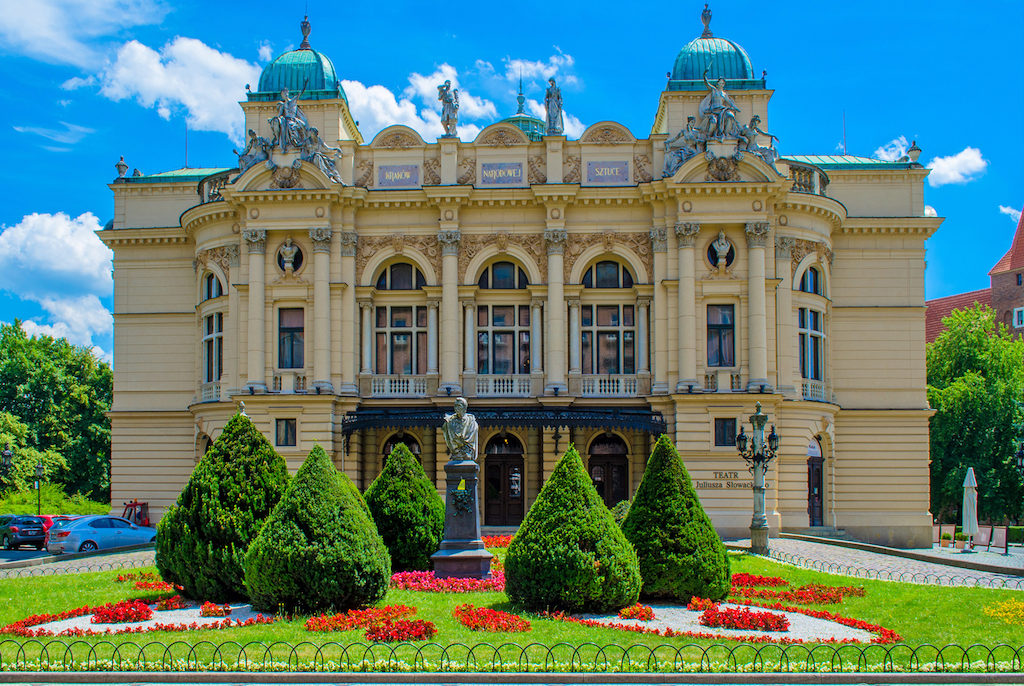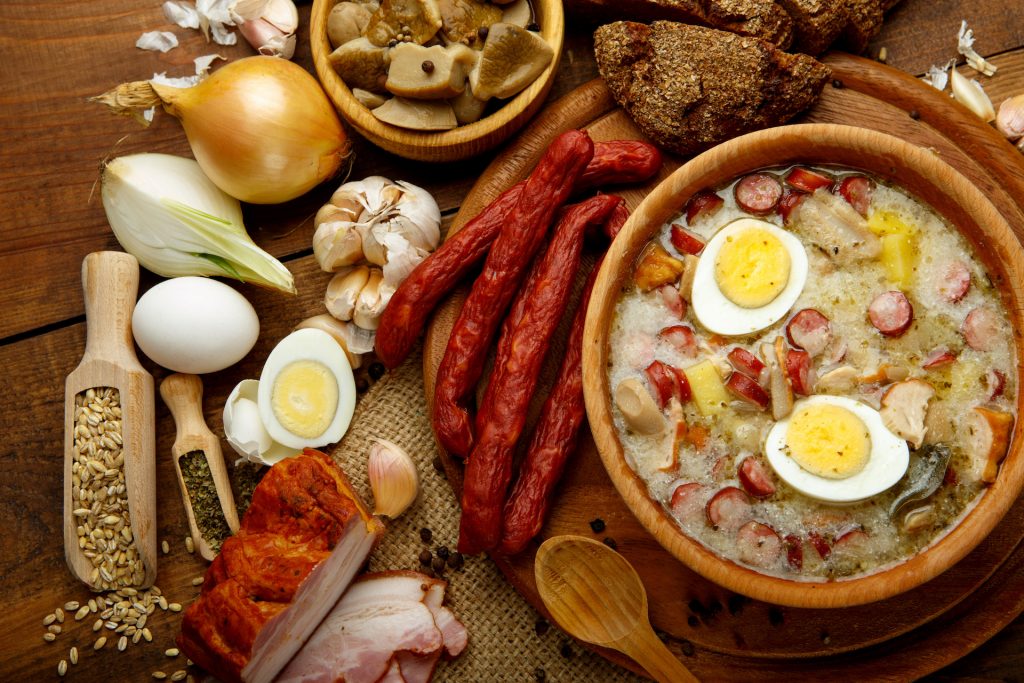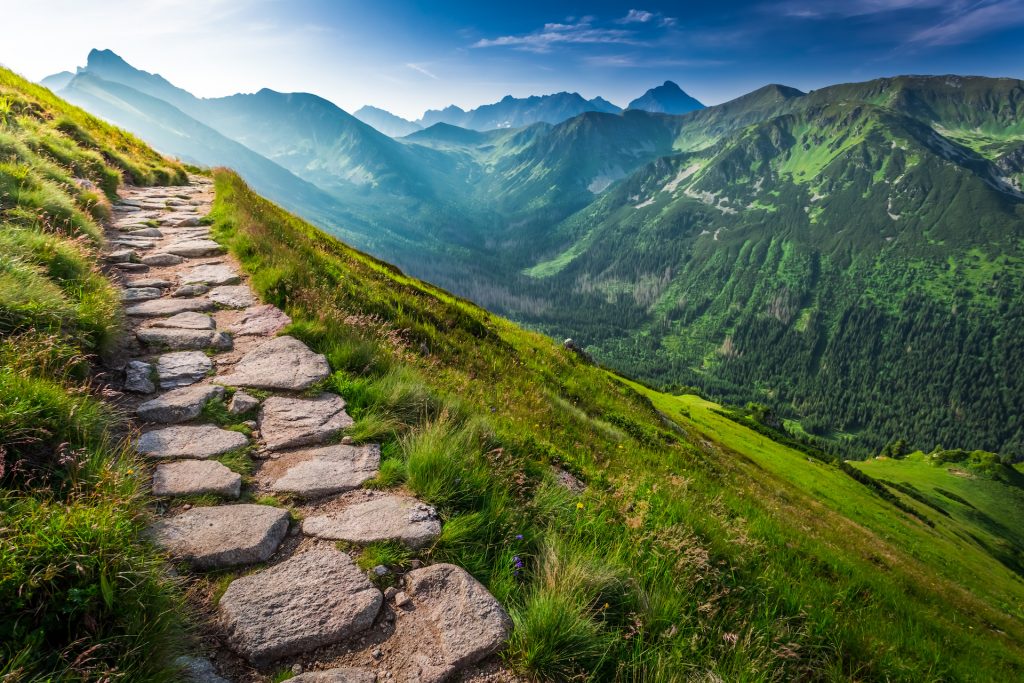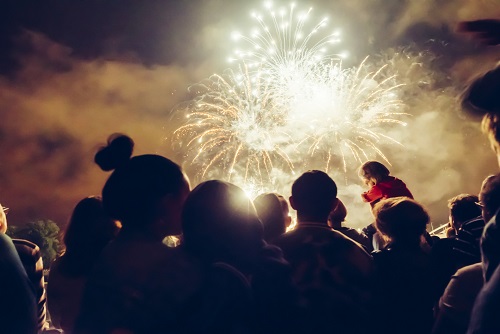TRADITION
Presently the Polish society is predominantly catholic and Poles regularly attend church services and observe catholic feasts. The Polish Christmas traditions were formed under the influence of the Austro-Hungarian culture. Krakow was the first city in Poland where homes were decorated with Christmas trees. Every year Krakow organizes famous Christmas Markets, and two local firms Radko and Calik have gained a world-wide fame and reputation for their beautiful handmade Christmas ornaments. On the other hand, Easter is the most colourful and joyous feast with lively and spirited references to the Slavic traditions celebrating the renewal of life. The Polish tradition of blessing food on Holy Saturday belongs to the most dazzling celebrations in Europe. Poles also attach great importance to the traditions related to family events, such as the birth and baptism of a child, weddings and wedding receptions, birthdays and names’ days. Polish wedding in particularly raise a lot of positive emotions among foreigners visiting our country, especially the most beautiful wedding celebrations organised in the mountainous regions of Poland, with their participants all dressed in the local folk costumes.
POLISH CHRISTMAS
The traditional Polish Christmas celebrations are regarded as the most important annual family-focused feast. By tradition, a Christmas tree is decorated here on the 24th of December and stays with us until the 2nd of February, i.e. for the entire Christmas period according to the liturgical calendar! The most important holiday is the Christmas Eve with its celebration initiated by the first star occurring on the night skyline. Traditionally, the Christmas Eve menu consists of 12 dishes which symbolises 12 apostles. The supper starts with the ceremony of breaking and sharing wafers (“oplatek”), and expressing the best wishes to your relatives. On that day, the menu does not include meat, but such dishes as a beetroot soup with traditional ravioli, a mushroom soup, pierogi with mushroom and sauerkraut, carp with plait bread, a vegetable salad, kutia or a poppy seed cake are simply a must-have! During the meal Poles sing Christmas carols, and then attend the Midnight Mass. On Christmas Day, Poles love to celebrate by revelling at the Christmas table surrounded by their close family. Krakow is the town where you can really feel the Christmas atmosphere and meet your friends for a sip of famous local mulled wine. Please contact us for details!
POLISH EASTER
The Polish Easter celebration is filled with various rituals and traditions. The Main Square in Krakow houses a traditional Easter Market where you can buy colourful Easter eggs and palms. The celebrations starts on Palm Sunday and the most famous regional events include the Easter palm competition held in Lipnica Murowana. In Kalwaria Zebrzydowska, every day a traditional passion play is staged which culminates in the Way of the Cross played by actors. One of the most important traditions in this period is the ceremony of food blessing on Holy Saturday; this food is then served and eaten by each family during their Easter breakfast. In Krakow, the blessing is performed by the Metropolitan of Krakow (a cardinal) in front of the St. Mary’s Basilica. The Easter menu must also include colourful Easter tarts and sponge cakes. Easter Sunday starts at 6 a.m. with the Mass of the Resurrection. It must be also added that the Easter magic is enriched here by the beautiful Polish spring weather. Please contact us for details!
POLISH WEDDING
If you ever receive an invitation to a Polish wedding, please do accept it! You will experience the adventure of your life-time. Polish weddings (especially the ones held in the mountainous regions of the country where all participants wear traditional folk costumes) must be regarded as the most exciting events of that type in Europe. Traditionally, a wedding takes place on Saturday, and then is followed by two days and nights of continuous festivity for up to as many as 200 guests. A wedding held in this corner of the world is basically all about boisterous festivity: every hour new hot dishes are served, with hectolitres of vodka consumed by the invited guests. The wedding procession to the church is a breathtaking ceremony and may take even a few hours. The richest families hire for this occasion hackney carts and carriages. Along the procession path, the neighbours not invited to the reception take out small tables on which the bridegroom and his best men place bottles of vodka and wedding cakes. To cure the day-after symptoms (commonly known as hangover), the wedding guests are served with traditional Polish borscht, and after a quick recovery they are expected to turn up on a Sunday afternoon for the so-called vodka lunch (the English speaking world calls it a champagne brunch) and continue to celebrate until early hours of Monday. Please contact us for details!












